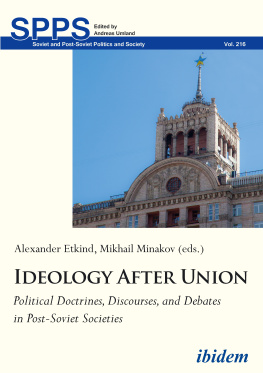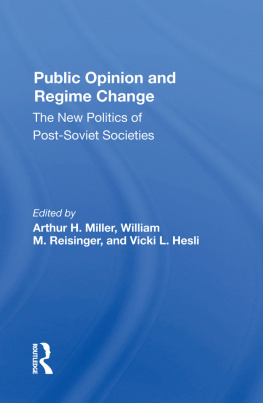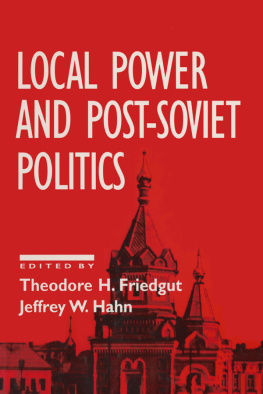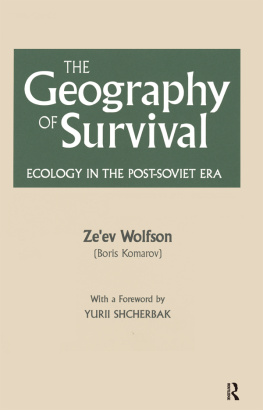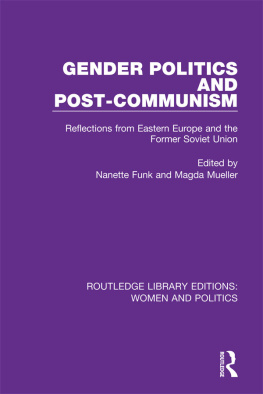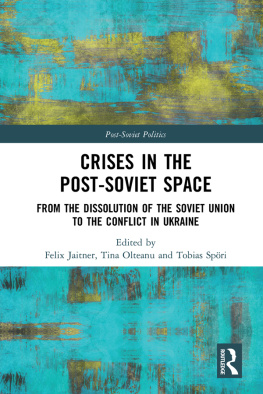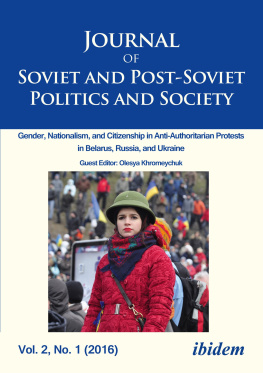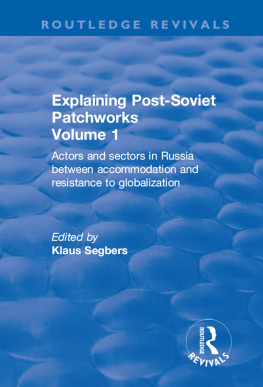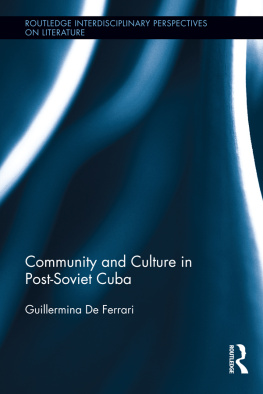ibidem-Press, Stuttgart
The authors and editors express their gratitude to Ms. Natalia Sheiko for her generous support to this publication.
Contents
Post-Soviet Ideological Creativity
Aleksander Etkind & Mikhail Minakov
Since the collapse of the Soviet Union in 1991, the people of its former republics have witnessed the return of history into their newand oldhomelands. The former Soviet populations lived in a world with a predictable future, and thus, as Aleksei Yurchak has well phrased it, everything was forever until it was no more (Yurchak 2013). Political thinking and the social imagination of individuals, small and large groups in USSR were directed and limited by the ideological monopoly of the state with its specific worldview, language, and regime. And the dissolution of the fundamental ideas and grammar of this monopoly during the time of Perestroika (1985-1991) caused the walls, which had long been guarding the Union, to collapse irreparably.
The Soviet vision of a preordained and predestined future has been replaced by a feeling of limitlessness of individual and collective endeavors. Unpredictability of the future was coupled with a sense of vulnerability vis--vis history. The challenges of an open future have led to a multitude of ideological responses in the enormous space lying between Tallinn and Vladivostok, Murmansk and Osh, Magadan and Chisinau. Human creativity has been boosted in all spheres, including politics and ideology. Formerly engaged in the dogmas of Soviet Marxism, political and ideological creativity provided these new societies, emerging from the ruins of the USSR, with an opportunity to build freer and more just polities. History has repatriated the post-Soviet lands as a plurality of political ideas and a clash of ideologies.
However, the disappearance of the great Soviet society was not as rapid as the changes in the political realm. The new societies of Eastern Europe and Northern Eurasia faced tectonic transformations, which led to a flourishing of different phenomena related to ideology. But the social structure adapted slowly. The new social reality had to normalize political competition, multiparty systems, private property, the significance of money, the coexistence of consumerist lifestyle and totalitarian traditions, and the contradictions between democratic politics and oligarchic economies, between atheism and religious renaissance, and so on. Events throughout the late 20th and early 21st centuries inspired new ideological frameworks, which allowed individuals, institutions and social groups to accept and interpret the new political and socioeconomic reality in a way that was eclectic, relativistic orthe most popular ideological term of the epochpost-modern. Though philosophical genealogies of the post-modern and post-Soviet conditions were vastly different if not oppositethese concepts often merged or conflated in their popular usage.
The new states and societies were immersed into a period of state- and nation-building, as well as the birth of new capitalist economies. The vast and drastic changes in lifestyles coincided with the spread of individualism, neoliberalism, democratic liberalism, libertarian anarchism, ethno-nationalism, religious conservatism, anti-progressivism, which frivolously combined or even merged in a public sphere that had been long deprived of critical discourse. Attempts to establish new ideocratic regimes based on ideological monopoly and then attempts to return to the political and ideological pluralism constituted chaos. All these contradictions needed revision and rational order. However, the resulting hierarchies could hardly sustain the new critical atmosphere.
Stemming from this chaos, the post-Soviet social imagination was striving for certainty and normalization. The massive discontent and revolutionary quest for new forms of social, political and economic life paradoxically coincided with the collective desire to return to normality and to join the civilized world (these expressions were the buzzwords in the late Soviet/early post-Soviet media). The idea of return also had a transitory intention: breaking away from the Soviet dead end, the Russian, Ukrainian and Lithuanian societies were striving to go back to their natural or correct past. Leaders of the Baltic countries, Ukraine and Russia saw the February Revolution in 1917 as the model for their republican experiments. Along with new legal experiments on the restitution of property and historical myths that made heroes of the nationalist leaders of the pre-Soviet era, the ideological creativity of 1991 tended to use forms and models of the late 19 th /early 20 th century for the post-Soviet societies entering the 21st century.
Another limitation for our societies political imagination was posed by the idea of copying. The limitlessness of politics after the dissolution of the USSR was also seen as a period when transfer of Western experience could have guaranteed democratic and economic success for the new Eastern Europe and Western Eurasia, according to some experts (Stefes 2006: 10-11; Gaidar 2010: 17-18). However, neither transition through transfer, nor transit via return delivered the promised success and return to normality. New forms of collective life took over the post-Soviet societies where neopatrimonialism, patronal networks, mafia-state, neo-imperialist politics, neo-Sovietism, neo-nazism, and demodernization became as strong as the democratic tendencies. The Baltic countries, in spite of the strong EU influence, still have considerable obstacles to being functioning democracies (Maciukaite-Zviniene 2009: 29-30; Krastev 2018). In the last twenty years the other 12 post-Soviet republics were slowly losing Perestroikas emancipatory impulse (Hale 2016). Even the most democratic countries out of these 12 remain in a state of semi-freedom with only a weak association with the EU (Nodia, Cenusa and Minakov 2017). The situation with democracy and the rule of law in six de facto post-Soviet states is even worse (Fischer 2016: 5-7; Minakov 2019). This unexpected current post-Soviet social reality was created by an interplay of revolutionary and restorationist strategies (Umland 2017). Overcoming Marxist, Stalinist and Brezhnevist pasts, post-Soviet authors have demonstrated an outstanding creativity in various genres of ideological storytelling, from non-fiction to fiction, from philosophy to utopia, and from history to fantasy.
These and many other processes connected to ideological creativity and political imagination in the post-Soviet societies have been studied by many individual scholars and research groups. One of the networks that unites the political scholars, sociologists, political philosophers and historians studying post-Soviet societies, cultures and ideologies was organized around The Ideology and Politics Journal.
The Ideology and Politics Journal (IPJ) was established by a group of scholars from Ukraine, Russia, Belarus and the USA in 2011 to analyze ideology in its political, social, and conceptual forms, at the core of post-Soviet societies. Very soon the Journal became a communication platform for researchers who study ideological processes in Belarus, Moldova, Russia, Ukraine and other post-Soviet countries. Researchers from this network published their studies in IPJ, transforming it into a unique chronicle of the development of new societies influenced by the multiplicity of ideological forms.
From the outset, IPJ has been d evoted to the study of how post-Soviet societies acknowledged the new socio-economic reality, as well as the changing values and guiding ideas for new political systems and cultures. Its authors have also considered how these societies represent themselves and their pasts, and how they project their futures.

